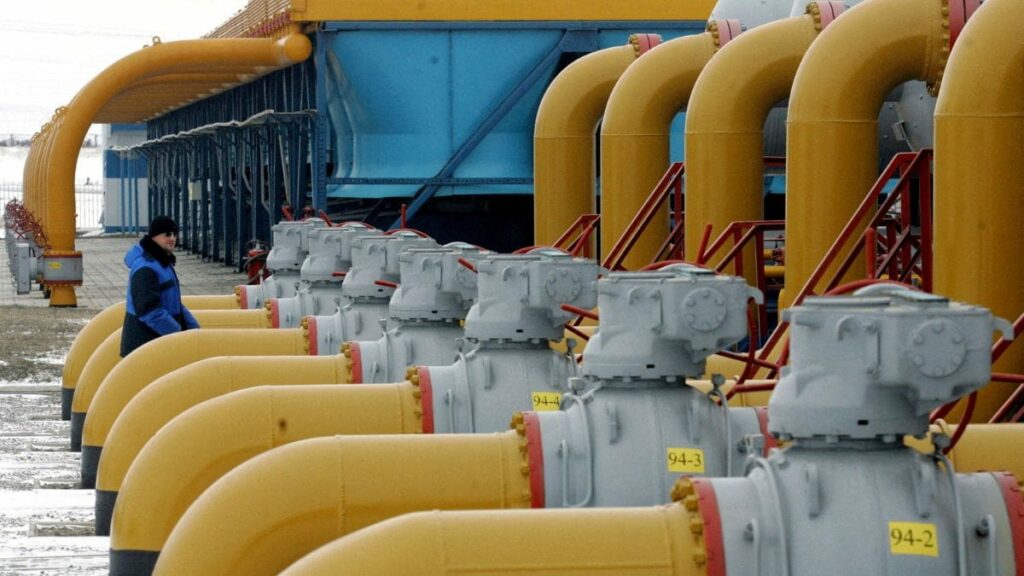A view of the business tower Lakhta Centre, the headquarters of Russian gas monopoly Gazprom in St. Petersburg, Russia, April 27, 2022. File Image/AP
The shift also highlights the importance of renewable energy. Europe’s investment in wind and solar power has been instrumental in reducing dependency on fossil fuels. Analysts argue that greater emphasis on renewables could mitigate the risks associated with geopolitical tensions and supply disruptions.
What about the Ukraine-EU balance?
The cessation of Russian gas transit raises critical questions about future energy cooperation between Ukraine and the EU. For Ukraine, the focus must shift toward developing its own energy infrastructure, including the expansion of domestic gas production and renewable energy projects.
On Wednesday, Polish Foreign Minister Radek Sikorski characterised Ukraine’s decision to cease gas transit as a victory for those opposing the Kremlin’s policies. In a post on X, Sikorski accused Moscow of systematically attempting to “blackmail Eastern Europe with the threat of cutting off gas supplies,” citing examples like a Baltic pipeline bypassing Ukraine and Poland to deliver gas directly to Germany.
Putin spent billions building Nordstream to circumvent Ukraine and blackmail Eastern Europe with the threat of cutting off gas supplies. Today Ukraine cut off his ability to export gas direct to the EU.
Another victory after the enlargement of NATO by Finland and Sweden.
— Radek Sikorski (@radeksikorski) January 1, 2025
The country has significant untapped potential in its gas fields and wind-rich regions, which could serve as a foundation for energy independence.
The EU, on the other hand, faces the challenge of supporting Ukraine while balancing its own energy needs. This could involve greater financial assistance for Ukraine’s energy reforms and closer integration of Ukrainian energy markets with the EU.
Joint investments in green energy projects and cross-border energy trade agreements may also be explored.
What is needed now?
The crisis has exposed vulnerabilities in Europe’s energy strategy, prompting calls for a more coordinated approach. Experts suggest creating a unified European energy policy that highlights resilience and sustainability.
This could include building additional LNG terminals, strengthening interconnections between national grids, and establishing a strategic gas reserve to cushion against future disruptions.
For countries like Moldova, targeted assistance will be crucial. International aid and EU support can help the country navigate its immediate energy challenges while laying the groundwork for long-term energy security.
This includes diversifying energy imports and investing in renewable energy projects to reduce reliance on external sources.
As Europe adapts to this new reality, the emphasis on green energy and regional cooperation will likely grow.
Also Watch:
With inputs from agencies
Source link : http://www.bing.com/news/apiclick.aspx?ref=FexRss&aid=&tid=677651bdcbb54a4f95327f4d34147138&url=https%3A%2F%2Fwww.firstpost.com%2Fexplainers%2Fukraine-stops-russian-gas-transit-it-means-for-europe-energy-future-13849268.html&c=3534118898181582991&mkt=de-de
Author :
Publish date : 2025-01-02 00:27:00
Copyright for syndicated content belongs to the linked Source.
